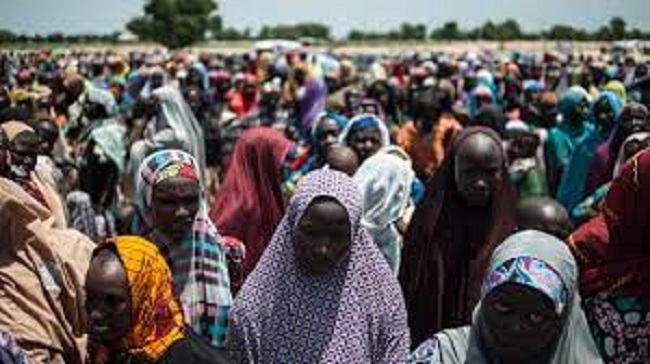EXPERTS, in a brand new examine, have mentioned the effectivity within the care of internally displaced individuals (IDPs) in camps is weak and really helpful an enchancment in camp administration management effectiveness to strengthen IDP response and facilitate safety of their rights, whereas permitting a scientific exit as an alternative of making an IDP conundrum.
They declared that management effectiveness can enhance the care of IDPs and the administration of camps in Africa, based mostly on the current surge within the variety of displacements ensuing from insurgency, militant actions, pure disasters, a number of conflict-related displacements and the uncoordinated camp construction.
This cross-sectional descriptive examine adopted focus group dialogue, structured interviews and key informant interview (KII) guides to undertake two levels of examine, together with scenario evaluation in chosen IDP camps on administration practices.
The examine was carried out in chosen IDP and refugee camps visited in Nigeria, Ghana and Sierra Leone between 2012 and 2016.
The camps visited in Nigeria have been Fulfore, Malkohi, NYSC IDP camps in Yola (North-East), Bakassi Resettlement Camp, Calabar, ICC IDP Camp Benin (South-South) and Oru Refugee Camp (South-West). In Ghana, Budumburam Refugee Camp in Accra was visited, whereas in Sierra Leone, the group visited Grafton IDP (amputees) camp in Freetown.
Based on the researchers, the management of IDP camps can effectively handle insufficient sources for IDPs by formulating structural principle that aligns survival methods with social wants for effectivity.
As well as, they said that camps could be structured in phases for efficient administration to beat the recognized challenges of overcrowding, sexual and gender-based violence, insecurity, poverty, malnutrition, home violence and protracted displacement, amongst others, in Sub-Saharan Africa.
The 4 phases to align survival methods to social want in IDP camps have been: after-shock (IDP-phase 1), the rapid interval after the incidence of the occasion; and stabilisation (IDP-phase 2), the part of settlement right into a camp routine with a predictable system of assembly primary wants.
The opposite phases are empowerment (IDP-phase 3), the stage of acquisition of vocational and mandatory administration expertise in direction of financial independence and re-integration (post-IDP-phase), the part of coordinated exit from the camp and reintegration into society as self-sustaining people.
The findings of the examine confirmed that there was overcrowding in all of the camps visited. There have been inadequate welfare gadgets, resulting in malnutrition and the deaths of youngsters and pregnant girls. Problems with gender-based violence have been widespread towards girls and ladies, and the insecurity of the lives and properties of camp residents was found as there was an incidence of bombings of IDP camps in Yola, Adamawa State.
Sexual assault and compelled prostitution amongst younger girls to earn revenue for private care and household assist have been recognized. Home violence towards girls by their intimate companions as a switch of aggression was additionally reported.
The examine concluded that the IDP camp administration construction was weak usually, there have been no streamlined administration protocols and all IDPs have been clamped collectively in overcrowded lodging and given the identical intervention obtainable.
It added that although all of the camps have traces of offering some psychosocial assist and empowerment programmes, they’re weak and these usually are not supplied on a necessity foundation, resulting in overstretched availability of insufficient sources and insufficiencies and in addition inefficiency in camp administration.
